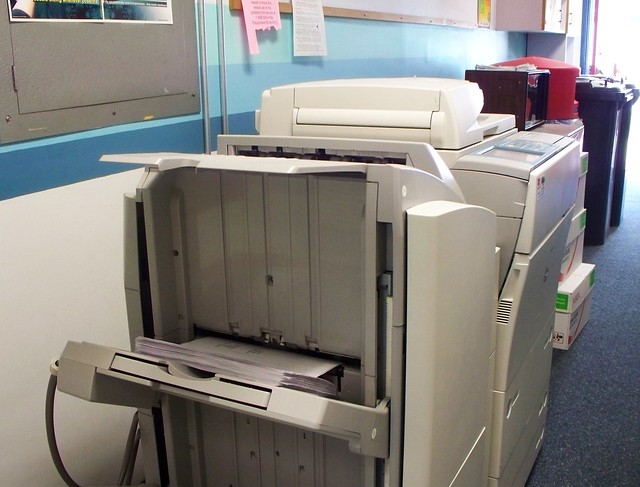The Photocopier of Today
One of the best productivity tools ever. (Photo Credits)
The photocopier has revolutionized the way people work. Website Boing Boing featured the history of this very helpful piece of equipment that is a workhorse in almost every office and business establishment.Builders and Contractors
“In 1959 Xerox released the 914 photocopier. It weighed 648 pounds, but it was a huge improvement over previous document copying technologies, which used wet chemicals. Xerox expected customers would make about 2,000 copies a month—but users easily made 10,000 a month, and some as many as 100,000. Before the 914 machine, Americans made 20 million copies a year, but by 1966 Xerox had boosted the total to 14 billion.”
Electricians. Read the rest of the article here.
Recognizes Microchips
And indeed the photocopier has come a long way. Website Inquisitr.Com featured a story on photocopiers that could recognize a microchip implanted on the hands of employees. “Workers in a Swedish office complex called Epicenter get around using high-tech microchips embedded in their hands. The microchip allows employees in the building to access security doors, use the photocopier, and even pay for their lunch, all with the swipe of their hand.”
Read the rest of the story here.
Related Electrical Repair Services
- Gforce Electric Residential & Commercial
- Gforce Electric Contractor Mira Mesa
- Gforce Electric Contractor Solana Beach
- Gforce Electrician Rancho Santa Fe
- Related Post
But as in other technological advancements and electronic devices, the photocopier also has ill effects on a person’s physical health.
British Website Daily Mail for instance is discouraging its readers from sitting next to photocopiers if they want to remain healthy. “Wet-toner photocopiers emit high levels of VOCs, so if you sit near one at work, move desks.”
Read the rest of the tips here.
So how many times do you use your office photocopier?
http://www.gforceelectric.com/re-purposing-old-appliances/
The post How the Photocopying Machine Changed the Way People Work appeared first on GforceElectric.

No comments:
Post a Comment